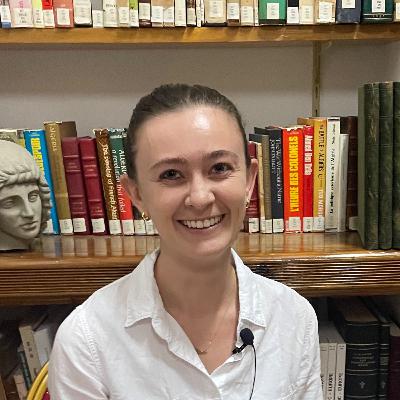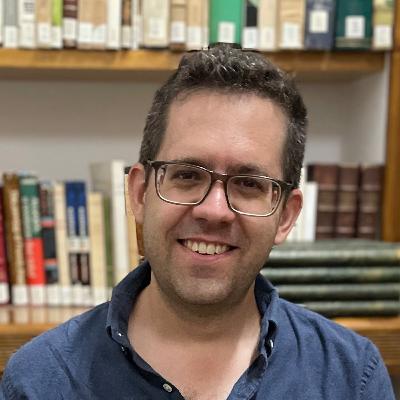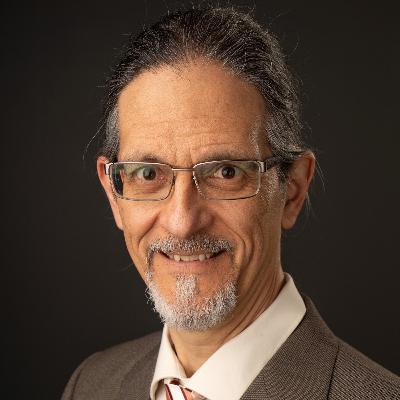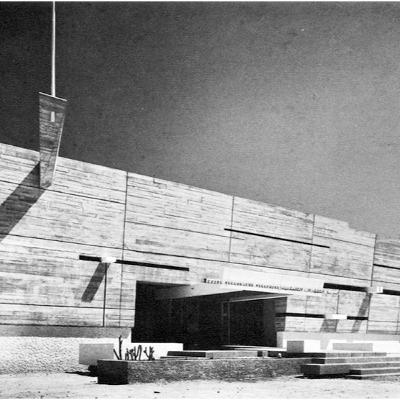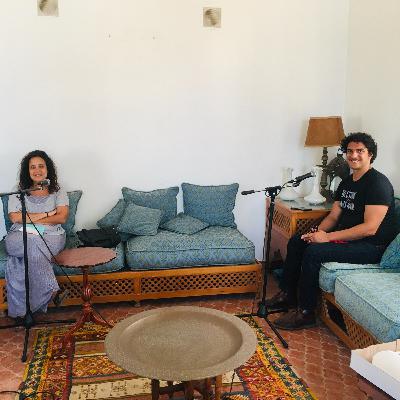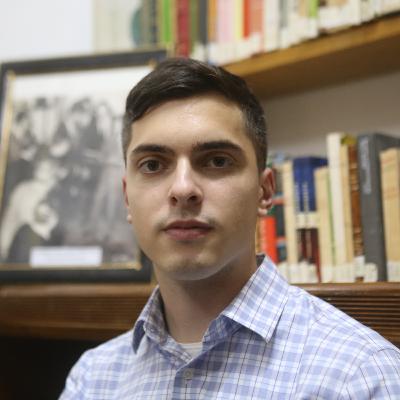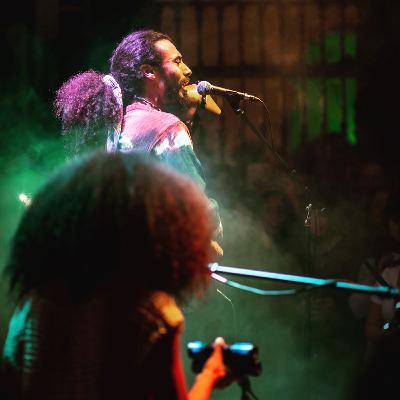Narrative Subversions: “Unnatural” Narration and an Ethics of Engagement in the Work of Mahi Binebin
Update: 2023-02-08
Description
This podcast presents work related to my first book project, The Suicide Archive: Reading Resistance in the
Wake of French Empire—which concludes with a chapter on suicide bombing, focused on Moroccan
writer and artist Mahi Binebine’s (b. 1959) novel Les Étoiles de Sidi Moumen (2010)—and a second
book project, Narrative Subversions: Strange Voices in Francophone Fiction, which explores unconventional
narrative configurations and includes a chapter on narrative techniques in Binebine’s work.
In the final chapter of The Suicide Archive, and in a recently published article “Dead Narrators,
Queer Terrorists,” in New Literary History, I show how literary texts such as Binebine’s novel—a
fictional account of the 2003 Casablanca bombings—circumvent and unsettle the established
discourses around suicide bombing. Narrated by a dead terrorist from beyond the grave, Binebine’s
Étoiles uses “unnatural narrative” to ethical ends, helping us to understand the prerequisites for
extraordinary violence. “Unnatural” or nonnatural narratives can be broadly defined as a subset of
fictional narratives that violate “physical laws, logical principles, or standard anthropomorphic
limitations of knowledge” (Alber). In postmodernist fiction, unnatural narratives often draw on
impossibilities conventionalized by earlier or established literary genres but deploy them in otherwise
realist frameworks. Unnatural narratives might involve nonrealistic or unconventional storytelling
scenarios, such as a dead or unborn narrator; a narrator that is an inanimate object; or you-
narratives/second-person fiction.
Mahi Binebine’s novelistic universe abounds with unnatural narratives and unconventional
narrators: from his first novel, Le Sommeil de l’esclave (1992)—an extended second-person address that
gives way to the memories of an enslaved woman—to his most recent novel, Mon frère fantôme (2022),
which is narrated by the split or twinned personality of a touristic guide in Marrakech. Analyzing
works such as these, Narrative Subversions shows how “unnatural” narratives emerge as formal
solutions to historical and epistemological impasses and as a mode of ethical engagement: means of
cultivating what Martha Nussbaum has called the “narrative imagination,” the ability to become an
intelligent (and empathetic) reader of the other people’s stories.
Dr. Doyle Calhoun is currently Assistant Professor of Language and Culture Studies (postcolonial Francophone studies) at Trinity College in Connecticut. He received his Ph.D. in French from Yale University this year, where he was an affiliate of the Yale Council on African Studies. Prior to Yale, he completed a Masters in linguistics at KU Leuven, in Belgium, where he was also a Fulbright Research Grantee.
His first book project, The Suicide Archive: Reading Resistance in the Wake of French Empire, turns the difficult topic of suicidal resistance into one worthy of analysis, attention, and interpretation. Beginning in the eighteenth century and working through the twenty-first century, from the time of slavery to the so-called Arab Spring, The Suicide Archive covers a broad geography that stretches from Guadeloupe and Martinique to Senegal, Algeria, Morocco, and Tunisia, and draws on an expansive corpus of literature, film, oral history, and archival materials to plot a long history of suicide as a political language in extremis.
Wake of French Empire—which concludes with a chapter on suicide bombing, focused on Moroccan
writer and artist Mahi Binebine’s (b. 1959) novel Les Étoiles de Sidi Moumen (2010)—and a second
book project, Narrative Subversions: Strange Voices in Francophone Fiction, which explores unconventional
narrative configurations and includes a chapter on narrative techniques in Binebine’s work.
In the final chapter of The Suicide Archive, and in a recently published article “Dead Narrators,
Queer Terrorists,” in New Literary History, I show how literary texts such as Binebine’s novel—a
fictional account of the 2003 Casablanca bombings—circumvent and unsettle the established
discourses around suicide bombing. Narrated by a dead terrorist from beyond the grave, Binebine’s
Étoiles uses “unnatural narrative” to ethical ends, helping us to understand the prerequisites for
extraordinary violence. “Unnatural” or nonnatural narratives can be broadly defined as a subset of
fictional narratives that violate “physical laws, logical principles, or standard anthropomorphic
limitations of knowledge” (Alber). In postmodernist fiction, unnatural narratives often draw on
impossibilities conventionalized by earlier or established literary genres but deploy them in otherwise
realist frameworks. Unnatural narratives might involve nonrealistic or unconventional storytelling
scenarios, such as a dead or unborn narrator; a narrator that is an inanimate object; or you-
narratives/second-person fiction.
Mahi Binebine’s novelistic universe abounds with unnatural narratives and unconventional
narrators: from his first novel, Le Sommeil de l’esclave (1992)—an extended second-person address that
gives way to the memories of an enslaved woman—to his most recent novel, Mon frère fantôme (2022),
which is narrated by the split or twinned personality of a touristic guide in Marrakech. Analyzing
works such as these, Narrative Subversions shows how “unnatural” narratives emerge as formal
solutions to historical and epistemological impasses and as a mode of ethical engagement: means of
cultivating what Martha Nussbaum has called the “narrative imagination,” the ability to become an
intelligent (and empathetic) reader of the other people’s stories.
Dr. Doyle Calhoun is currently Assistant Professor of Language and Culture Studies (postcolonial Francophone studies) at Trinity College in Connecticut. He received his Ph.D. in French from Yale University this year, where he was an affiliate of the Yale Council on African Studies. Prior to Yale, he completed a Masters in linguistics at KU Leuven, in Belgium, where he was also a Fulbright Research Grantee.
His first book project, The Suicide Archive: Reading Resistance in the Wake of French Empire, turns the difficult topic of suicidal resistance into one worthy of analysis, attention, and interpretation. Beginning in the eighteenth century and working through the twenty-first century, from the time of slavery to the so-called Arab Spring, The Suicide Archive covers a broad geography that stretches from Guadeloupe and Martinique to Senegal, Algeria, Morocco, and Tunisia, and draws on an expansive corpus of literature, film, oral history, and archival materials to plot a long history of suicide as a political language in extremis.
Comments
In Channel





